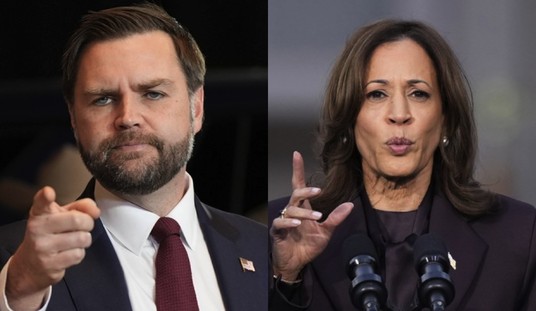Last week, in addition to covering attempted delegate revolts over rules, a parade of wacky, zany convention speakers, plagiarizing speeches, and Ted Cruz, the national media attending the Republican National Convention also managed to home in on a favorite pet topic: How the Republican Party platform shows that the GOP is so insanely far-right on every issue going that it makes Iran’s Ayatollahs look like reasonable centrists.
Of course, this is not actually true, but it does create a major impetus for reporters to focus on what’s in the Democratic Platform—and it turns out that that platform, partially written by people like Cornel West, has lurched waaaay far to the left. Like, really, really far.
With everyone talking about Debbie’s downfall, it may be hard to find much hand-wringing over it. But, barring some last-minute changes, here’s what the Democratic Platform looks likely to include, via the Washington Post’s Dave Weigel:
Minimum wage. The 2012 platform was rote, promising that Democrats would “raise the minimum wage, and index it to inflation.” That did not happen, something the party could always blame on Republican control of the House. According to the party, the new platform “already included language declaring that Americans should earn at least $15 an hour,” but with a commitment that fell short of what Sanders wanted. It also calls for an end to “sub-minimum wage for tipped workers”; tipped workers were not mentioned in the 2012 platform.
Earned income tax credit. The 2012 platform praised the president and congressional party for expanding the EITC, with no detail. The draft language for 2016 apparently includes language “expanding the EITC to low wage workers who don’t have children and to workers age 21 and older,” courtesy of Ellison.
Breaking up banks. The 2012 platform treated the 2008 financial crisis as an afterthought, something dealt with by an effective president. “Democrats are holding Wall Street accountable, bringing new transparency to financial markets, and ending taxpayer-funded bank bailouts and the era of ‘too big to fail,'” it said. The new platform, according to the DNC, suggests “an updated and modernized version of Glass-Steagall and breaking up too big to fail financial institutions that pose a systemic risk to the stability of our economy” and notes that Clinton’s allies (who made up a majority of committee members) suggested this.
Social Security. In 2012, Democrats again praised themselves for protecting the status quo against Republicans. “Democrats believe that Social Security and Medicare must be kept strong for seniors, people with disabilities, and future generations,” they wrote. This year, they adopted language that would raise the cap — a long-held goal of progressives — and start “taxing some of the income of people above $250,000.” The summary language describes this as “expanding” Social Security, though it falls short of what many Sanders voters want.
Immigration. The new platform calls for the closing of private detention centers, a Sanders goal not mentioned in any way four years ago.
Criminal justice reform. In 2012, the party claimed to “understand the disproportionate effects of crime, violence, and incarceration on communities of color and are committed to working with those communities to find solutions” and promised to “fight inequalities in our criminal justice system.” This year’s language is more specific: It calls for “ending the era of mass incarceration, shutting down private prisons, ending racial profiling, reforming the grand jury process, investing in re-entry programs, banning the box to help give people a second chance and prioritizing treatment over incarceration for individuals suffering addiction,” according to the summary.
Some of this is non-controversial.
A lot of people on the right think big banks should be broken up, and continue to worry about certain financial institutions being “too big to fail.” We certainly agreed with the 2012 Democratic Platform language that has apparently been built upon here that called for no more taxpayer-funded bank bailouts.
Most people across the philosophical spectrum agree that it’s better to put heroin addicts in rehab than in prison. Most of us, whether right or left, see benefit in re-entry programs for prisoners about to walk out of jail and try to function without getting back to old, bad habits on the outside.
But a lot of the rest of this is much more ideological, and the kind of policy that would create huge practical problems if ever implemented.
A national $15-an-hour minimum wage sounds nice on paper, but would probably drive unemployment up, likely spike inflation, and rather than benefiting really poor working families would disproportionately benefit teenagers working summer jobs at McDonald’s.
Raising taxes to fund Social Security sounds nice, but doesn’t address the fundamental problem which is that entitlement cuts will be facing us all—tax hikes or not— if the federal government can’t bring down our national debt.
Potential problems with banning private prisons or immigration detention facilities are less well-known, but include badly impacting the US Marshals, since they rely heavily on private facilities for custody services, and potentially forcing women and children freeing violence into jails full of legitimately dangerous criminals while they’re being assessed by immigration authorities (because let’s be honest: No matter how much Sanders backers may want this, this country is never going to sign off on just letting literally everyone over the border to stay here forever without a visa or an ID or health check).
This stuff isn’t as sexy to most reporters as, say, social conservatives at the RNC advocating for “conversion therapy” for gay people, but it’s arguably more important to pay attention to, especially since the people pushing some of the really right-leaning stuff in the Republican Platform have basically no influence in the GOP, other than where platform fights are concerned, and the people pushing the leftward lurch in the Democratic Platform have enough power to, well, oust the Democratic National Committee Chair.













Join the conversation as a VIP Member